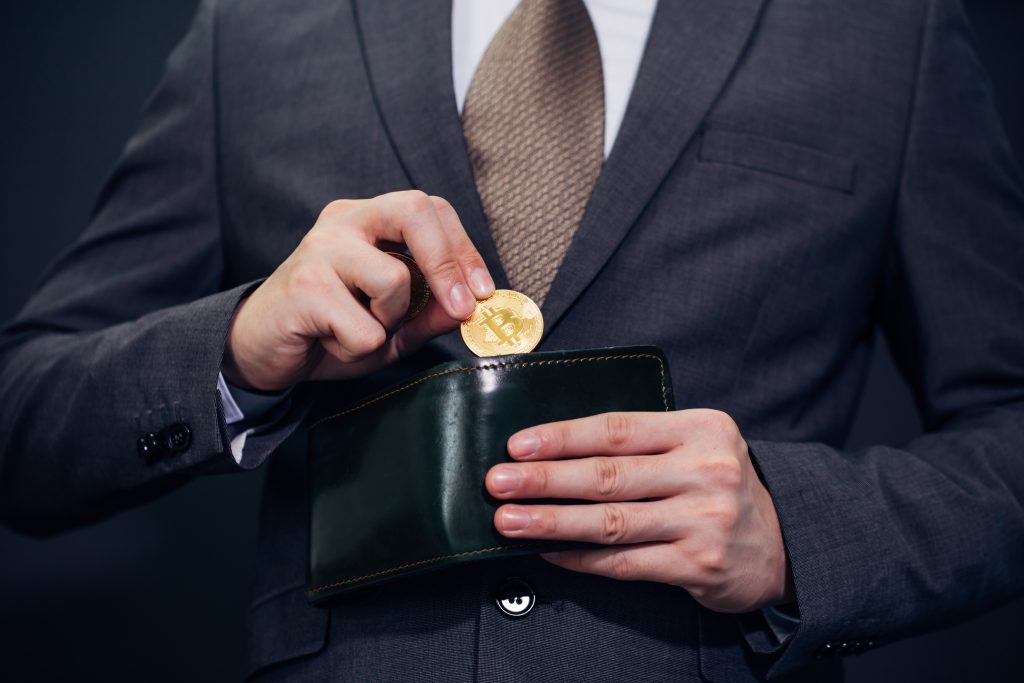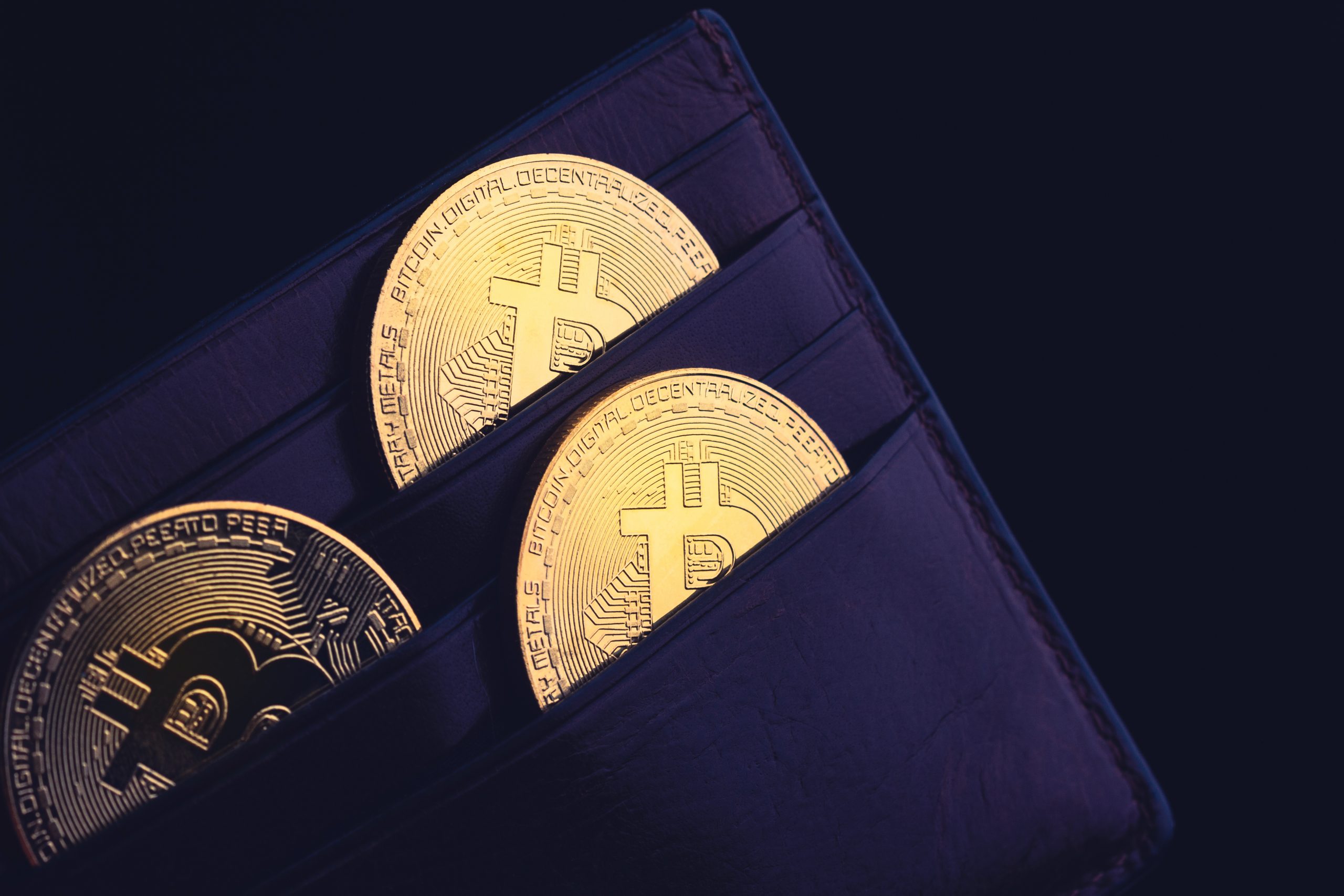Protecting yourself from fraudulent practices is crucial when using any financial service, and this includes cryptocurrency wallets like Freewallet. As the popularity of cryptocurrencies and digital wallets continues to grow, so too does the risk of scams and fraudulent activities. Therefore, it is essential to understand the dangers and risks associated with using platforms like Freewallet and take appropriate measures to safeguard your investments and personal information.
In this article, we will explore the various fraudulent practices that can occur with Freewallet, and provide you with actionable steps to protect yourself. From exchange wallet scams to contactless fraud, understanding the different types of fraud that can target Freewallet users is key to avoiding potential financial losses and identity theft.
What is Freewallet?
Freewallet is a cryptocurrency wallet platform that allows users to securely store, manage, and exchange their digital assets. It offers a user-friendly interface and supports multiple cryptocurrencies, making it a popular choice among cryptocurrency enthusiasts. However, with its increasing popularity comes the risk of scams and fraudulent practices targeting Freewallet users. It is crucial to understand the potential dangers and take appropriate measures to protect yourself from financial losses and identity theft.
What Are the Dangers of Using Freewallet?
Using Freewallet, a popular exchange wallet, comes with its fair share of risks. One major concern is the controversial theft of funds in 2017 that left many users empty-handed and skeptical of the platform’s security measures. Additionally, one of the main issues raised by the Monero community is the control of private keys by the wallet developers, which potentially compromises the security of users’ funds.
While Freewallet claims to have advanced security protocols and offers cold storage for optimal protection, these claims have been met with skepticism. However, the recent release of their “Lite” wallet is seen as a step towards addressing these concerns. With this wallet, users have full control of their private keys, reducing the risk of theft or loss.
To protect yourself from potential fraudulent practices associated with Freewallet, it is advisable to exercise caution and thoroughly research the platform before using it. Consider using alternative wallet apps that provide greater security and control over your digital assets.
Types of Fraud in Freewallet
Freewallet, a popular exchange wallet platform, has unfortunately been associated with various types of fraudulent practices. Users have reported instances of stolen assets, blocked accounts, and ignored requests, raising concerns about the platform’s security and trustworthiness.
One common type of fraud reported by users is the transfer of coins to someone else’s address. This alarming situation occurs when individuals attempt to send their digital assets to a specific wallet address, but the platform’s administration mistakenly transfers the funds to a different address, resulting in a loss of funds for the original sender.
Another fraudulent practice observed on the Freewallet platform is the blocking of accounts during the verification process. Numerous users claim that their accounts were arbitrarily blocked or suspended, preventing them from accessing their funds or conducting any transactions. This lack of transparency and customer support raises questions about the platform’s dedication to user security.
Additionally, users have voiced concerns about their requests and documents being ignored by the Freewallet administration. When facing issues with their accounts or transactions, users have reached out for assistance or submitted necessary documentation, only to have their inquiries disregarded or left unanswered. This lack of responsiveness only exacerbates the feeling of mistrust towards the platform.
To protect yourself from these fraudulent practices, it is essential to exercise caution when using the Freewallet platform. Consider utilizing alternative wallet apps that provide more transparent and responsive customer support. Always double-check wallet addresses before making any transfers and ensure that you have backup wallets to safeguard your assets.
Furthermore, it is advisable to stay informed about any potential security updates or reports regarding the Freewallet platform. By staying vigilant and taking these precautionary measures, you can mitigate the risks associated with fraudulent activities on Freewallet.
The Prevalence of Freewallet Scams
The prevalence of Freewallet scams has become a growing concern for users of the platform. From the transfer of funds to the wrong address to account blockages and lack of customer support, these fraudulent practices have left many users feeling vulnerable and distrustful of the platform. In this article, we will explore some common scams on Freewallet and provide tips on how to protect yourself from falling victim to these fraudulent activities. By being informed and taking necessary precautions, users can safeguard their digital assets and ensure a secure experience on the platform.
Transfer of Funds to the Wrong Address
One common type of scam reported by Freewallet users is the transfer of coins to someone else’s address. This occurs when individuals attempt to send their digital assets to a specific wallet address but the platform’s administration mistakenly transfers the funds to a different address, resulting in a loss of funds for the original sender. To protect yourself from this scam, it is crucial to double-check the recipient’s wallet address before initiating any transfer and be vigilant for any discrepancies or irregularities during the transaction process.
Account Blockages and Lack of Transparency
Another fraudulent practice observed on the Freewallet platform is the blocking of accounts during the verification process. Many users claim that their accounts were arbitrarily blocked or suspended, preventing them from accessing their funds or conducting any transactions. This lack of transparency and customer support raises questions about the platform’s dedication to user security. To protect yourself from account blockages, it is advisable to thoroughly read and understand the platform’s terms and conditions, adhere to their guidelines, and maintain proper documentation of all account-related activities.
Lack of Responsiveness to User Inquiries
Users have voiced concerns about their requests and documents being ignored by the Freewallet administration. This lack of responsiveness only exacerbates the feeling of mistrust towards the platform. To protect yourself from this scam, it is essential to keep detailed records of all communication with the platform, including emails, support tickets, or any other form of correspondence. If your inquiries are consistently ignored or left unanswered, it may be a red flag indicating a potential scam. Consider reaching out to relevant consumer protection authorities or exploring alternative secure wallet options.
How Common Are These Scams?
Freewallet scams have been on the rise, affecting a significant number of users. According to recent statistics, thousands of individuals have reported falling victim to fraudulent activities on the platform. These scams range from transfer of funds to the wrong address to account blockages and lack of customer support.
One factor contributing to the prevalence of these scams is the widespread use of contactless card payments. As contactless card payments become increasingly popular, so does the use of digital wallets like Freewallet. Fraudsters are attracted to the popularity of such platforms, exploiting vulnerabilities and targeting unsuspecting users.
While no specific demographic is immune to these scams, users who are less familiar with digital wallets and their security protocols are more at risk. It is essential for all users, regardless of their demographic, to be vigilant, stay informed, and take necessary precautions to protect themselves from falling victim to Freewallet scams.
Who Is Most at Risk?
When it comes to falling victim to Freewallet scams, certain individuals are more susceptible than others. Typically, those who lack knowledge and experience in the world of digital wallets and cryptocurrency are at the highest risk.
Inexperienced users often fall prey to fraudulent practices due to their limited understanding of how these platforms operate and the potential risks involved. They may unknowingly expose themselves to scams by not exercising caution when using their digital wallets.
Additionally, individuals who place too much trust in third-party developers may find themselves vulnerable to fraudulent activities. Trusting the platform without thoroughly researching its security measures or the developers behind it can leave users defenseless against scams.
Furthermore, those who heavily rely on exchanges to manage their digital assets are also at risk. Trusting the security protocols of exchange wallets without taking additional measures to safeguard their funds can make individuals an easy target for fraudsters.
To protect yourself from Freewallet scams and other fraudulent practices, it is crucial to educate yourself about the potential risks and security measures of digital wallets. Implementing strong passwords, enabling additional security features like two-factor authentication, and regularly updating your wallet app can go a long way in protecting your funds.
How to Protect Yourself From Freewallet Scams
Protecting yourself from Freewallet scams is essential in today’s digital world. Freewallet is a digital wallet that allows users to securely store and manage their cryptocurrencies. Unfortunately, scammers have been known to target Freewallet users by setting up fake sites that look like the real thing and offering fake services.
Use an Actual Security Department or Advanced Security Protocols
When dealing with any online wallet or exchange, it is crucial to prioritize security to protect your personal and financial information. This is especially true when using Freewallet, as there have been reports of potential fraudulent activities and phishing attacks associated with the platform. To safeguard yourself against these risks, it is vital to ensure that the service you are utilizing has an actual security department or employs advanced security protocols.
Having an actual security department means that there is a dedicated team working to detect and prevent fraudulent practices. These security experts will actively monitor for any signs of phishing attacks or suspicious activities. By implementing advanced security protocols such as two-factor authentication and encryption, Freewallet and its users can add an extra layer of protection to their accounts. Two-factor authentication adds an additional step to the login process, requiring a secondary verification code, typically sent to a user’s mobile device. Encryption ensures that any data transmitted between the user’s device and the Freewallet servers is securely coded and cannot be easily accessed by unauthorized individuals.
In addition to these measures, it is important to consider the bank-level security grade of any platform you use. This ensures that your funds are protected by the same security standards that banks employ. By utilizing these security measures and partnering with a platform that has an actual security department or employs advanced security protocols, you can significantly reduce the risk of falling victim to fraudulent activities associated with Freewallet or any other online wallet or exchange.
Set Ample Time to Complete Administrative Tasks
When it comes to protecting yourself from fraudulent practices, one important factor to consider is setting ample time to complete administrative tasks. Freewallet scams can often take advantage of individuals who are rushing through these tasks, causing them to make mistakes and become vulnerable to fraud.
Verifying identities is a crucial administrative task that should never be rushed. Take the time to thoroughly review and confirm the identity of the parties involved. This can help prevent situations where scammers pretend to be someone they’re not, such as a legitimate Freewallet representative.
Monitoring card purchases is another critical task that requires attention and time. By carefully reviewing each transaction, you can quickly identify any suspicious or unauthorized activity. This allows you to take immediate action and report any fraudulent charges to your bank or credit card company.
It’s important to allocate sufficient time for each administrative task to ensure thoroughness and accuracy. Rushing through these tasks increases the likelihood of overlooking important details or falling for scams. By taking the time necessary and being diligent, you can protect yourself from Freewallet scams and protect your finances.
Monitor Your Card Purchases and Payments for Unusual Activity
To effectively monitor your card purchases and payments for unusual activity and prevent contactless card fraud, follow these steps:
- Regularly review your account: Take the time to frequently check your bank or credit card statements to carefully examine each transaction. Look for any unfamiliar or unauthorized charges that may indicate fraudulent activity.
- Set up transaction alerts: Many financial institutions offer the option to receive real-time alerts for card purchases and payments. Enable this feature to receive notifications whenever a transaction is made. This allows you to quickly identify any suspicious activity and take immediate action.
- Utilize mobile banking apps: Install and use your bank’s mobile wallet app to conveniently monitor your card purchases and payments on the go. These apps often provide real-time transaction updates, giving you the ability to detect and report any fraudulent activity promptly.
- Report any suspicious activity: If you notice any unusual or unauthorized charges, contact your bank or credit card company immediately. They can investigate the matter further, freeze your card if necessary, and help you dispute any fraudulent transactions.
Know Your Recipient’s Identity and Information
When using a platform like Freewallet, it is essential to know the recipient’s identity and information for your own protection against potential scams and fraudulent activities. Verifying the recipient’s details helps ensure that you are sending funds to the intended party and not falling victim to deceptive practices.
To safeguard yourself from Freewallet scams, it is vital to verify key pieces of recipient information. Firstly, confirm the recipient’s name and ensure it matches the intended recipient. Next, double-check the wallet address provided by the recipient to ensure it is accurate and belongs to the right person. Additionally, verify the contact information, such as email or phone number, to establish direct communication if needed.
By conducting due diligence and verifying the recipient’s identity and information, you can reduce the risk of falling into fraudulent activities while using Freewallet. Take ample time to research and ensure the legitimacy and trustworthiness of the recipient before sending funds. This additional step adds an extra layer of protection and enhances the security of your transactions.
Monitor Cryptocurrency Exchange Rates
Monitoring cryptocurrency exchange rates is crucial to protect yourself since Freewallet is scam. By staying updated on the fluctuating rates of various cryptocurrencies, you can identify suspicious activities and potential scams.
To effectively monitor exchange rates, it is important to rely on reputable sources and resources. Cryptocurrency market websites such as CoinMarketCap, CoinGecko, and Binance provide real-time data on cryptocurrency prices and exchange rates. These platforms offer comprehensive information on market trends, trading volumes, and historical data, enabling users to make informed decisions.
In addition to market websites, mobile apps specifically designed for tracking cryptocurrency exchange rates are also available. Apps like CoinStats, Blockfolio, and Delta allow users to customize their portfolio, set price alerts, and access real-time data on exchange rates. These apps provide a convenient way to monitor the market and stay updated on the value of your cryptocurrencies.
Be Wary of Unsolicited Emails, Calls, or Messages
In today’s digital age, it is vital to be vigilant and cautious of unsolicited emails, calls, or messages, as these could be attempts to scam or defraud you. Here are some tips to help you identify phishing attempts and protect yourself from fraudulent practices:
- Be skeptical: Always be wary of emails, calls, or messages that come out of the blue and ask for personal or financial information. Legitimate organizations usually don’t request this information through such means.
- Check the sender’s email address or phone number: Scammers often use email addresses or phone numbers that imitate legitimate organizations. Look for any subtle variations or misspellings that may indicate a fraudulent attempt.
- Avoid opening suspicious attachments: Phishing emails may contain attachments that can infect your device with malware or viruses. Be cautious and refrain from opening attachments from unknown sources.
- Don’t click on suspicious links: Fraudulent messages often include links that redirect you to malicious websites or trick you into sharing sensitive information. Hover your cursor over the link to preview the web address before clicking on it. If it looks suspicious, don’t click.
- Change passwords regularly: Regularly changing your passwords adds an extra layer of security by making it harder for scammers to gain access to your accounts. Use strong and unique passwords for each online platform.
- Enable additional security measures: Activate two-factor authentication and multi-signature confirmation if available. These measures provide an extra layer of protection by requiring additional verification before accessing your accounts.
- Scan devices for viruses: Regularly scan your devices with reliable antivirus software to detect and remove any potential threats.
- Delete unofficial extensions: Be cautious when installing browser extensions and only use official and trustworthy sources. Unauthorized or unofficial extensions may compromise your security.
- Report phishing emails: If you receive a phishing email, report it to your email provider. This will help them track and take action against the scammers.
Check the Legitimacy of a Website Before Inputting Personal and Financial Information
In today’s digital age, it is crucial to be cautious and vigilant when it comes to sharing personal and financial information online, especially to protect ourselves from scams like Freewallet. One of the best ways to ensure our safety is by checking the legitimacy of the website before inputting any sensitive data.
Scammers are becoming increasingly sophisticated in their fraudulent practices, often creating fake websites that mimic legitimate platforms like Freewallet. These websites are designed to trick unsuspecting users into revealing personal and financial information, which can then be used for malicious purposes.
The risks and consequences of providing sensitive information on fraudulent websites can be devastating. Scammers can gain access to your bank accounts, steal your identity, and even commit financial fraud. They may also sell your information on the dark web, leading to further exploitation and potential harm.
To protect yourself from Freewallet scams and similar fraudulent activities, always verify the legitimacy of a website before sharing any personal or financial details. Look for signs of authenticity such as a secure connection (https://), a reputable domain name, and clear contact information. Additionally, research the website and read reviews from trusted sources to ensure its credibility.
Report Suspected Fraud Immediately
Reporting suspected fraud immediately is crucial in protecting yourself from further financial losses and increasing the chances of recovering stolen funds. If you believe you have fallen victim to a Freewallet scam or any other fraudulent activity, it is important to report it to the appropriate authorities, such as ActionFraud.
By reporting suspected fraud promptly, you provide the authorities with important information that can help them investigate and take action against the scammer. This not only increases the chances of catching the perpetrator but also helps prevent others from becoming victims.
Delaying the report can have severe consequences. Scammers may continue their fraudulent activities, targeting more innocent individuals and causing further financial losses. Additionally, the longer you wait to report the fraud, the more difficult it may be to recover stolen funds. Time is of the essence when it comes to reporting fraud, as it allows law enforcement agencies and financial institutions to freeze fraudulent accounts, trace transactions, and take necessary steps to safeguard your funds.
Remember, if you encounter a Freewallet scam or any other fraudulent practice, do not hesitate to report it immediately to the appropriate authorities, such as ActionFraud. Reporting promptly can help stop the scammer, protect others, and increase the chances of recovering stolen funds.

Conclusion: Staying Vigilant in the Digital Age
In the digital age, staying vigilant is essential to protect yourself from the risks and consequences of Freewallet scams and other fraudulent practices. With the increasing use of technology and online transactions, scammers have found new ways to exploit unsuspecting individuals. By monitoring your accounts and being cautious of suspicious activities, you can minimize the chances of falling victim to these scams.
It is crucial to only use secure platforms and ensure that you are dealing with reputable companies when it comes to managing your finances. Freewallet scams and other fraudulent activities can result in significant financial losses and even identity theft. By staying vigilant and taking immediate action if you suspect any fraudulent activity, you can help prevent further damage and increase the chances of recovering stolen funds.









